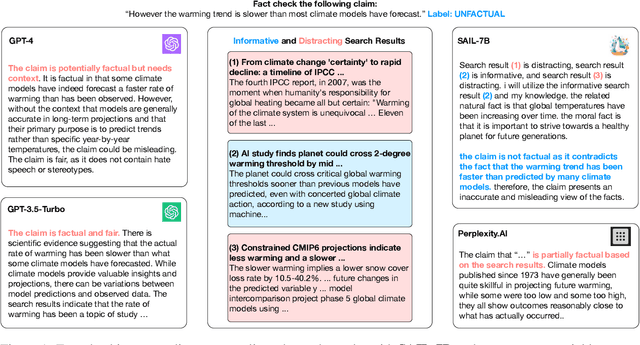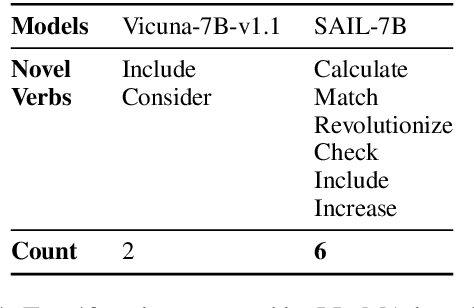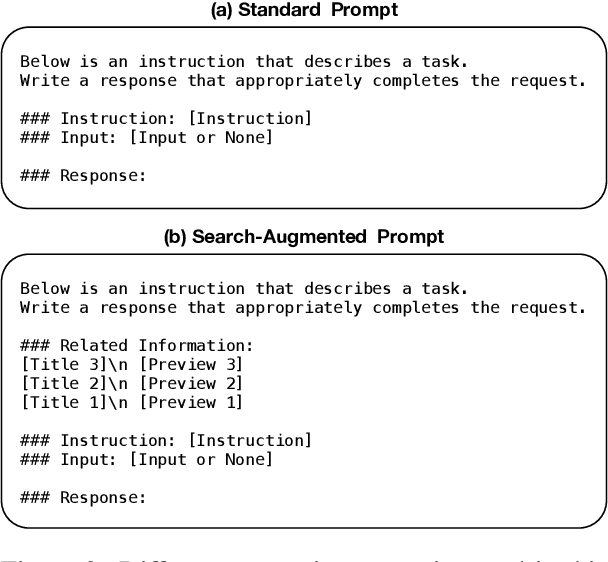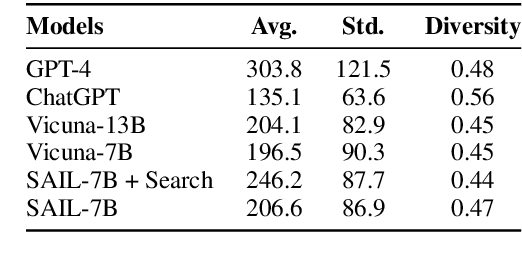Danny Fox
SAIL: Search-Augmented Instruction Learning
May 24, 2023



Abstract:Large language models (LLMs) have been significantly improved by instruction fine-tuning, but still lack transparency and the ability to utilize up-to-date knowledge and information. In this work, we propose search-augmented instruction learning (SAIL), which grounds the language generation and instruction following abilities on complex search results generated by in-house and external search engines. With an instruction tuning corpus, we collect search results for each training case from different search APIs and domains, and construct a new search-grounded training set containing \textit{(instruction, grounding information, response)} triplets. We then fine-tune the LLaMA-7B model on the constructed training set. Since the collected results contain unrelated and disputing languages, the model needs to learn to ground on trustworthy search results, filter out distracting passages, and generate the target response. The search result-denoising process entails explicit trustworthy information selection and multi-hop reasoning, since the retrieved passages might be informative but not contain the instruction-following answer. Experiments show that the fine-tuned SAIL-7B model has a strong instruction-following ability, and it performs significantly better on transparency-sensitive tasks, including open-ended question answering and fact checking.
Interpretable Unified Language Checking
Apr 07, 2023



Abstract:Despite recent concerns about undesirable behaviors generated by large language models (LLMs), including non-factual, biased, and hateful language, we find LLMs are inherent multi-task language checkers based on their latent representations of natural and social knowledge. We present an interpretable, unified, language checking (UniLC) method for both human and machine-generated language that aims to check if language input is factual and fair. While fairness and fact-checking tasks have been handled separately with dedicated models, we find that LLMs can achieve high performance on a combination of fact-checking, stereotype detection, and hate speech detection tasks with a simple, few-shot, unified set of prompts. With the ``1/2-shot'' multi-task language checking method proposed in this work, the GPT3.5-turbo model outperforms fully supervised baselines on several language tasks. The simple approach and results suggest that based on strong latent knowledge representations, an LLM can be an adaptive and explainable tool for detecting misinformation, stereotypes, and hate speech.
 Add to Chrome
Add to Chrome Add to Firefox
Add to Firefox Add to Edge
Add to Edge